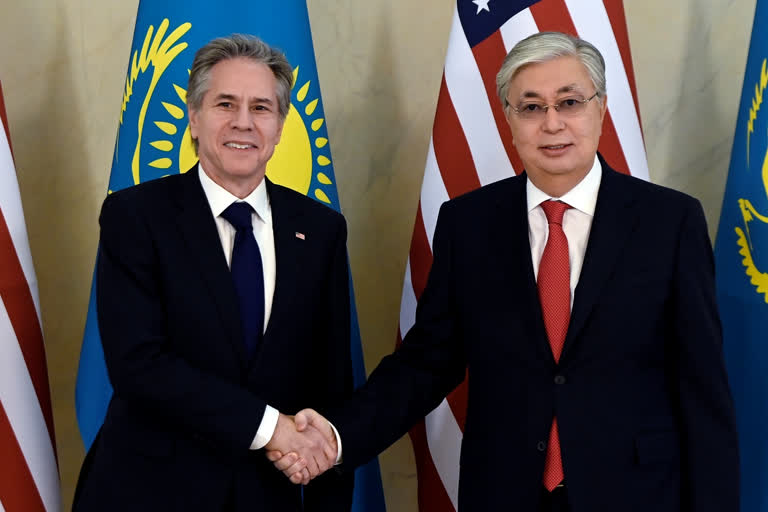Astana: U.S. Secretary of State Antony Blinken visited Kazakhstan on Tuesday for a series of meetings with top diplomats of Central Asian nations as tensions soar over Russia's war in Ukraine. Blinken sat down for talks with Kazakh Foreign Minister Mukhtar Tileuberdi and then with Kazakh President Kassym-Jomart Tokayev.
A meeting of the so-called C5+1 group, made up of the U.S. and the former Soviet republics of Kazakhstan, Kyrgyzstan, Tajikistan, Turkmenistan and Uzbekistan, was expected to follow. At that meeting, Blinken will stress the U.S. "commitment to the independence, sovereignty, and territorial integrity of Central Asian countries," the State Department said in a statement that mirrors the wording it has been using to support Ukraine in its war against Russia.
Blinken's visit to Astana and later this week to Tashkent, the capital of Uzbekistan, mark his first trip to Central Asia as secretary of state. It comes just days after the anniversary of Moscow's invasion of Ukraine, which has rattled the region. None of the five former Soviet republics in Central Asia, traditionally viewed as part of the Kremlin's sphere of influence, publicly backed the attack.
Kazakhstan welcomed tens of thousands of Russians fleeing from the military call-up last fall. Kazakh President Kassym-Jomart Tokayev spoke on the phone with Ukrainian President Volodymyr Zelenskyy three times since Russian troops rolled into Ukraine last February, calling for a diplomatic resolution of the conflict in accordance "with the U.N. charter and commonly accepted norms of the international law."
However, all five Central Asian republics, along with India, which Blinken will visit next, abstained in a vote to condemn the invasion last week at the U.N. General Assembly on the first anniversary of the war. U.S. officials hope that Blinken can convince the Central Asian nations that Russia's invasion of Ukraine is a threat to them.
The U.S. has for decades sought without great success to wean the former Soviet nations of the region from Moscow's influence. Some, notably Uzbekistan and Tajikistan, assisted the U.S. logistically during its 20-year conflict in Afghanistan. (AP)



